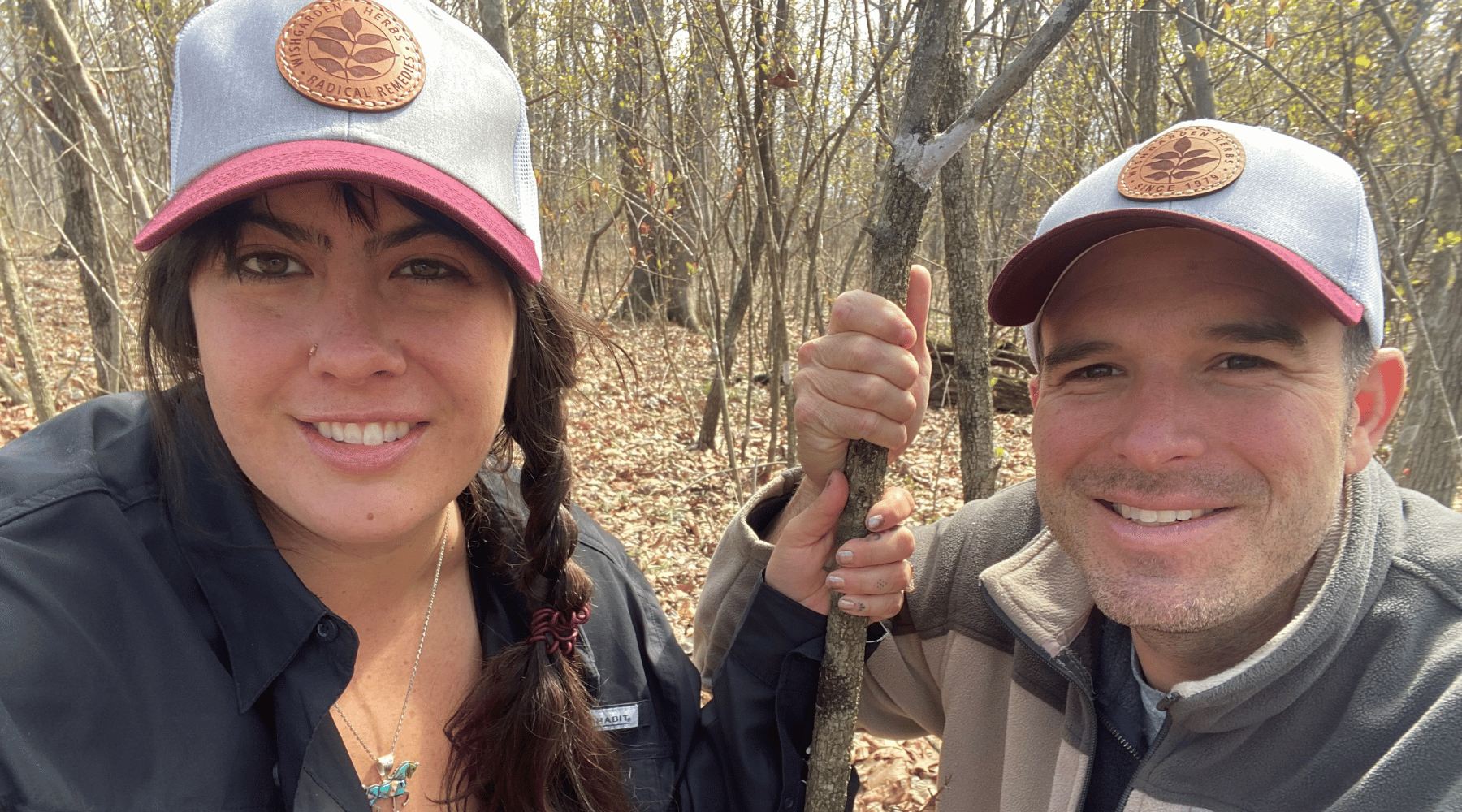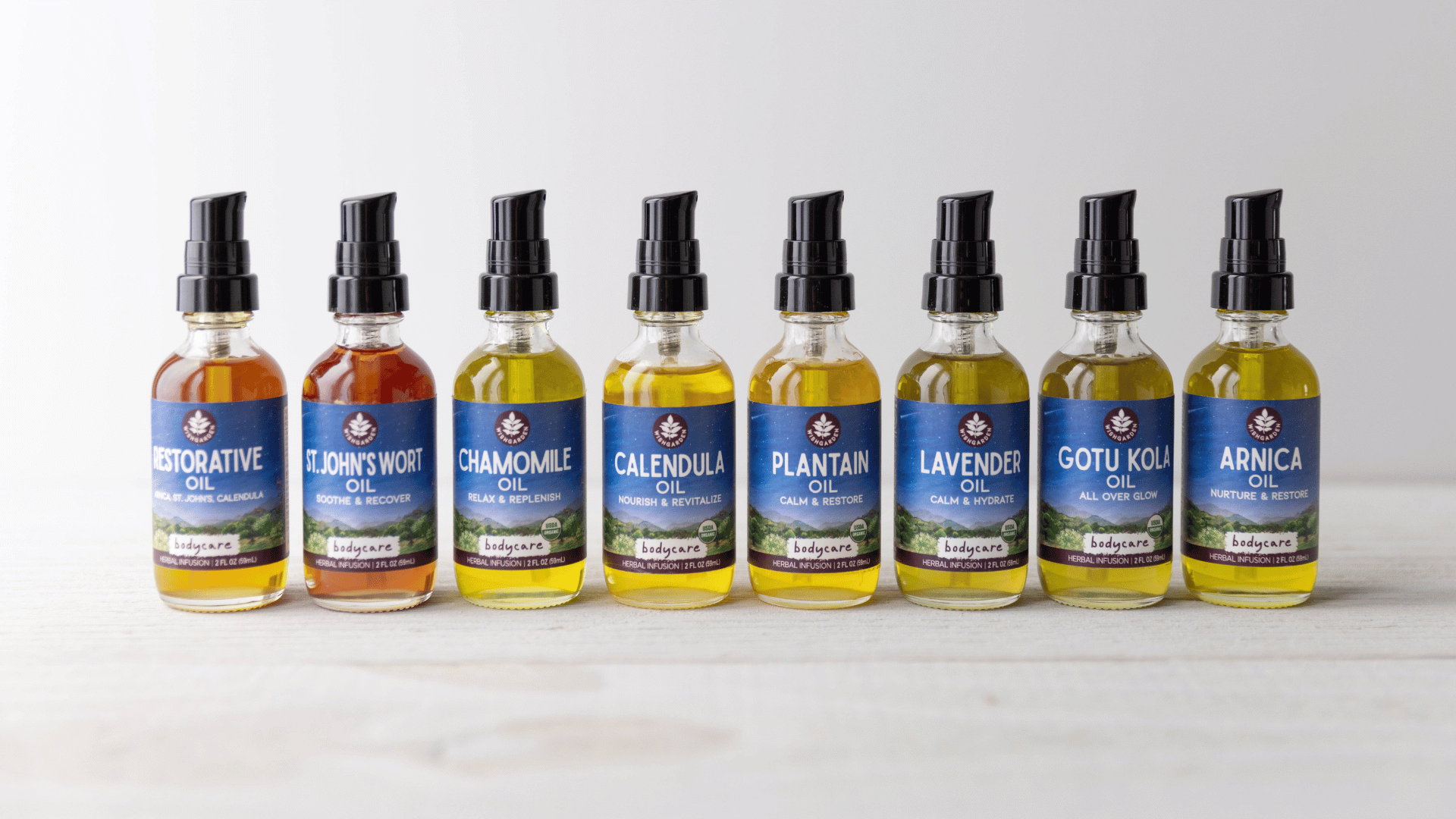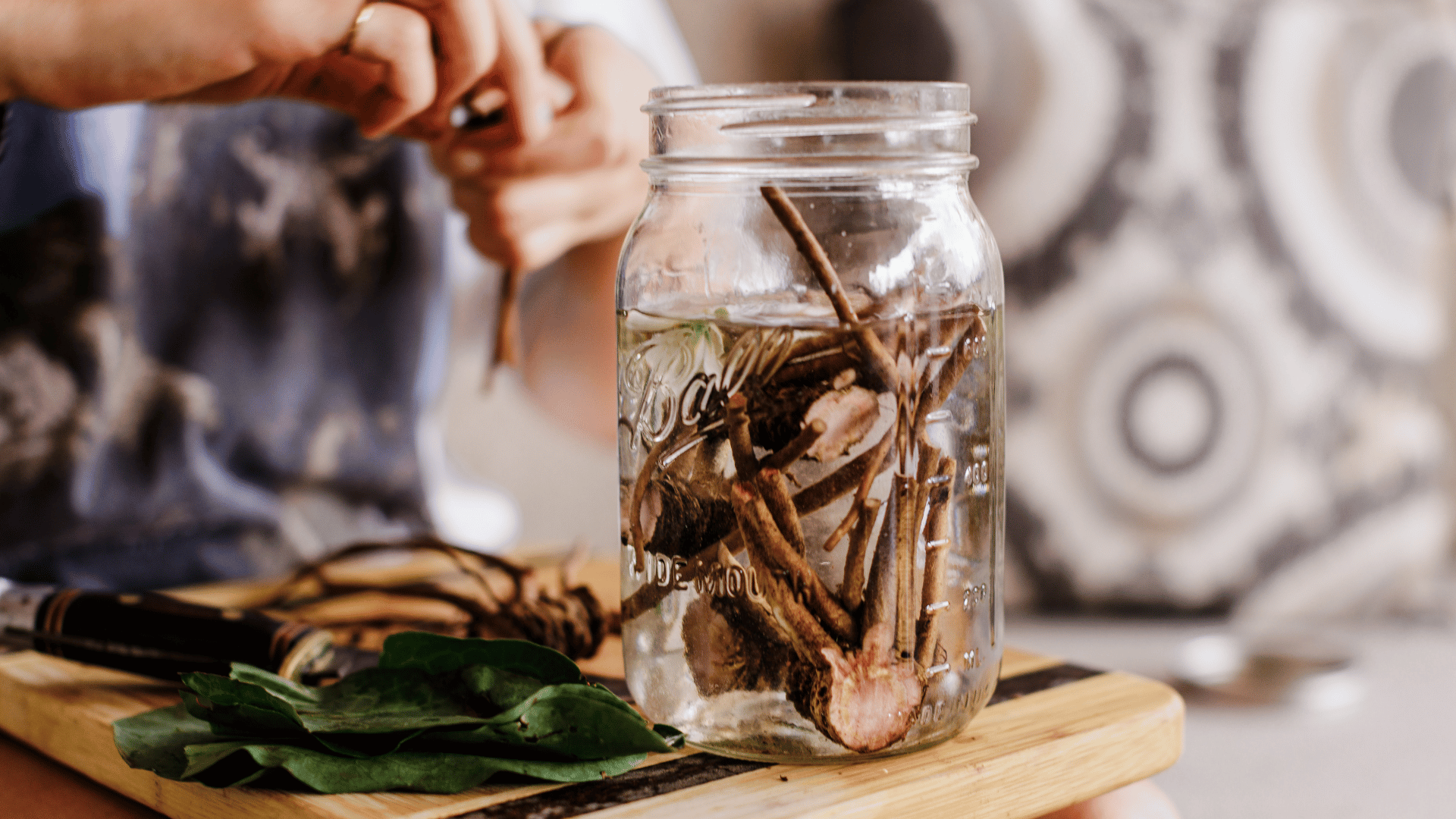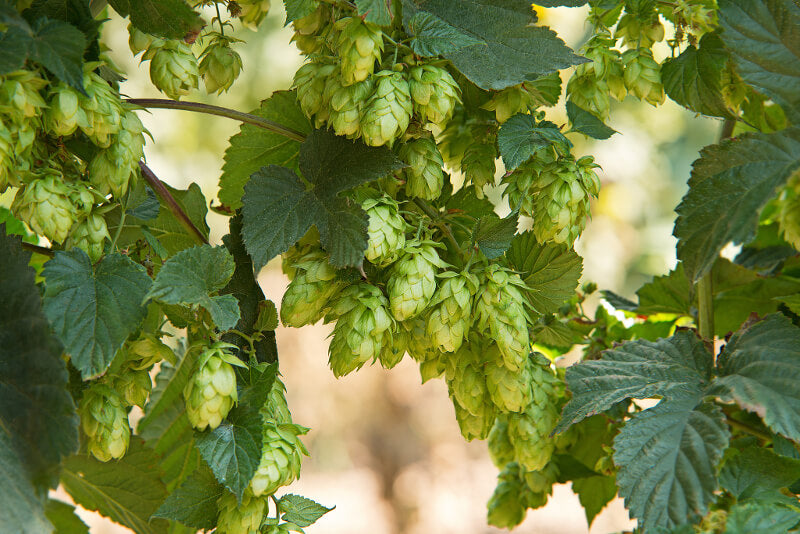
Wild Lettuce Benefits: Traditional Herbal Support for Relaxation, Comfort, and Rest
Written by Rebecca Younger, CH, CDShare
When stress feels unrelenting, when sleep seems elusive, or when everyday aches interrupt your rhythm, many people look to nature for support. Among the lesser-known yet historically cherished wild plants is wild lettuce (Lactuca virosa), often called opium lettuce or bitter lettuce. Despite its dramatic nicknames, this tall lettuce contains no opiates. Instead, it has been valued since ancient times as a traditional herbal remedy for encouraging calm, offering gentle relief from occasional aches and pains, and supporting the central nervous system in times of need.
Today, wild lettuce is making a quiet comeback. From soothing wild lettuce tea to carefully crafted liquid extracts, this herbal has a rich history of use. Curious about how this milky sap–bearing plant earned its reputation as “lettuce opium”? Let’s explore its story, its traditional health benefits, and how modern herbalists use it to support balance and ease in daily life.
A Plant with a Rich History
Wild lettuce’s use traces back to ancient times, when herbalists valued its calming effects. Traditional Western herbal texts describe the use of wild lettuce extract as a natural approach to relieve pain, ease nervous tension, and support restful sleep. In 19th-century Europe and America, wild lettuce was commonly prepared in tinctures and teas, used as a natural treatment for restlessness, mild discomfort, and occasional sleep issues. While not considered a cure, it provided a soothing option at a time when pharmaceutical alternatives were limited.
In folk medicine, wild lettuce was even referred to as “lettuce opium,” a nod to its relaxing qualities rather than any narcotic content. Herbalists across generations have also noted its role in supporting respiratory health, particularly during periods of difficulty breathing or lingering coughs such as whooping cough.
Botanical Background
Belonging to the Asteraceae family, wild lettuce (Lactuca virosa) is a hardy, tall lettuce that thrives in disturbed soils, fields, and woodland edges in both Europe and North America. The plant is easily recognized by its green leaves, prickly stems, and clusters of yellow flowers. Its milky sap, a white substance known as lactucarium, was traditionally harvested for use in calming preparations.
While some have mistakenly labeled it as poisonous lettuce, its safety largely depends on proper preparation and use. As with all natural products, guidance from a qualified healthcare professional ensures responsible and safe usage.
Active Compounds: Why Wild Lettuce Works
- Lactucin and Lactucopicrin: Believed to have mild sedative effects and contribute to the plant’s traditional role in supporting comfort and relaxation.
- Bitter lactones: Compounds found in wild lettuce that aid digestion and support nutrient absorption.
- Milky sap (lactucarium): Historically valued for its soothing and calming effects on the central nervous system.
Today’s herbalists and researchers are taking a fresh look at these traditional compounds, exploring their potential to support restful sleep and everyday comfort without some of the drawbacks often associated with conventional options.
Health Benefits in Traditional Use
While modern research is still exploring wild lettuce, it has a long history in traditional herbal practices. Historically, it has been used to support:
Sleep and Relaxation
- Encouraging the body’s natural rhythms for more restful sleep.
- Helping ease occasional nervous tension.
- Offering a gentle option compared to stronger sleep aids.
Comfort and Relief
- Traditionally applied for everyday aches and pains, including joint stiffness, muscle soreness, and tension discomfort.
- Valued by herbalists for its soothing, supportive properties.
Emotional Well-Being
- Helping the body cope with occasional stress and anxiousness.
- Traditionally used to support a calm, balanced nervous system.
Respiratory Ease
- Used in folk practices to promote clear, comfortable breathing.
- Soothing to the throat during times of respiratory discomfort.
Muscle and Skin Support
- Supporting relaxation after physical exertion or minor strains.
- Traditionally used both internally and topically for comfort in muscles and skin.
How to Use Wild Lettuce
Wild lettuce can be enjoyed in several forms, allowing you to choose what best fits your wellness routine. Traditionally, it has been prepared in the following ways:
- Wild Lettuce Tea: Steep the dried leaves in hot water for 10–15 minutes. The mildly bitter flavor offers a direct connection to the plant’s natural character.
- Liquid Extracts: Tinctures are valued for their potency and quick absorption. Herbalists often recommend starting with 1–2 mL in water or tea to gauge personal comfort.
- Capsules: A convenient choice for those who prefer to skip the plant’s naturally bitter taste.
- Topical Balms: Traditionally applied to support comfort in joints or to soothe minor skin irritations.
As with any herbal supplement, it’s best to begin with small amounts and notice how your body responds. For personalized guidance, consult with a qualified healthcare professional.
Combining Herbs for Greater Support
Herbalists often suggest pairing wild lettuce with other botanicals to create a more balanced, synergistic effect. Together, these herbs have long been valued in traditional practices for supporting relaxation and overall comfort:
- Passionflower (aerials): Traditionally used to encourage calm and ease occasional restlessness.
- Scullcap (aerials): Known for supporting the nervous system and helping the body unwind.
- Valerian (root): Revered for centuries as a gentle sleep-supportive herb.
- Wood Betony (European aerials): Traditionally used to promote relaxation and grounded well-being.
- Black Cohosh (root): Valued in traditional use for soothing physical tension.
- Hops (strobiles): Commonly paired with other calming herbs to support rest.
- Ginger (root): Added for its warming qualities and support of healthy digestion.
- Chamomile: A gentle, calming herb that can help soften bitterness and support digestion.
- California Poppy: Historically appreciated for easing everyday discomforts.
One example of this kind of thoughtful herbal synergy is WishGarden Herbs’ Serious Relaxer formula. It's often described as a “hot tub in a bottle.” Crafted with wild lettuce and some of the herbs listed above, it’s designed to support deep relaxation, ease physical tension, and help calm the body and mind after stressful or demanding days.
Safety and Precautions
As with all natural remedies, responsible use is key. The National Center for Complementary and Integrative Health advises consulting a healthcare provider before starting any herbal supplement. Exercise caution if you:
- Are pregnant or breastfeeding
- Are giving herbs to children
- Are taking sedatives or other medications
- Have allergies to the Asteraceae family
Always consider the potential side effects, which may include mild drowsiness or digestive upset if taken in large amounts.
Sustainability and Ethical Sourcing
As interest in wild plants grows, so does our responsibility to care for the ecosystems that provide them. At WishGarden, we believe every harvest should honor both the plant and the land it comes from. That’s why we focus on:
- Choosing organic cultivation whenever possible, reducing pressure on fragile wild populations.
- Partnering with regenerative farms and ethical wildcrafters who share our respect for the earth.
- Protecting natural habitats so wild lettuce can continue to thrive in its native environment.
By sourcing with care, we help ensure not only the long-term availability of wild lettuce, but also the health of the ecosystems and communities that make herbal wellness possible.
Bringing Nature’s Wisdom Home
Wild lettuce reminds us that nature has long offered gentle, time-tested ways to support our well-being. Whether enjoyed on its own or paired with other trusted herbs, it continues to inspire those seeking a more natural path to relaxation and comfort. Here’s to honoring the wisdom of plants and inviting more calm into our daily lives!
Rebecca Younger is passionate about herbs and women's health. She aspires to plant seeds of inspiration within her community about plant medicine and healthier ways of life. She studied Herbal Medicine at Herbalism Roots in Denver and is a certified Doula through the Matrona Foundation. She is the Brand Communications Specialist at WishGarden Herbs.
For educational purposes only. This information has not been evaluated by the Food and Drug Administration. This information is not intended to diagnose, treat, cure, or prevent any disease, or to sell any product.















